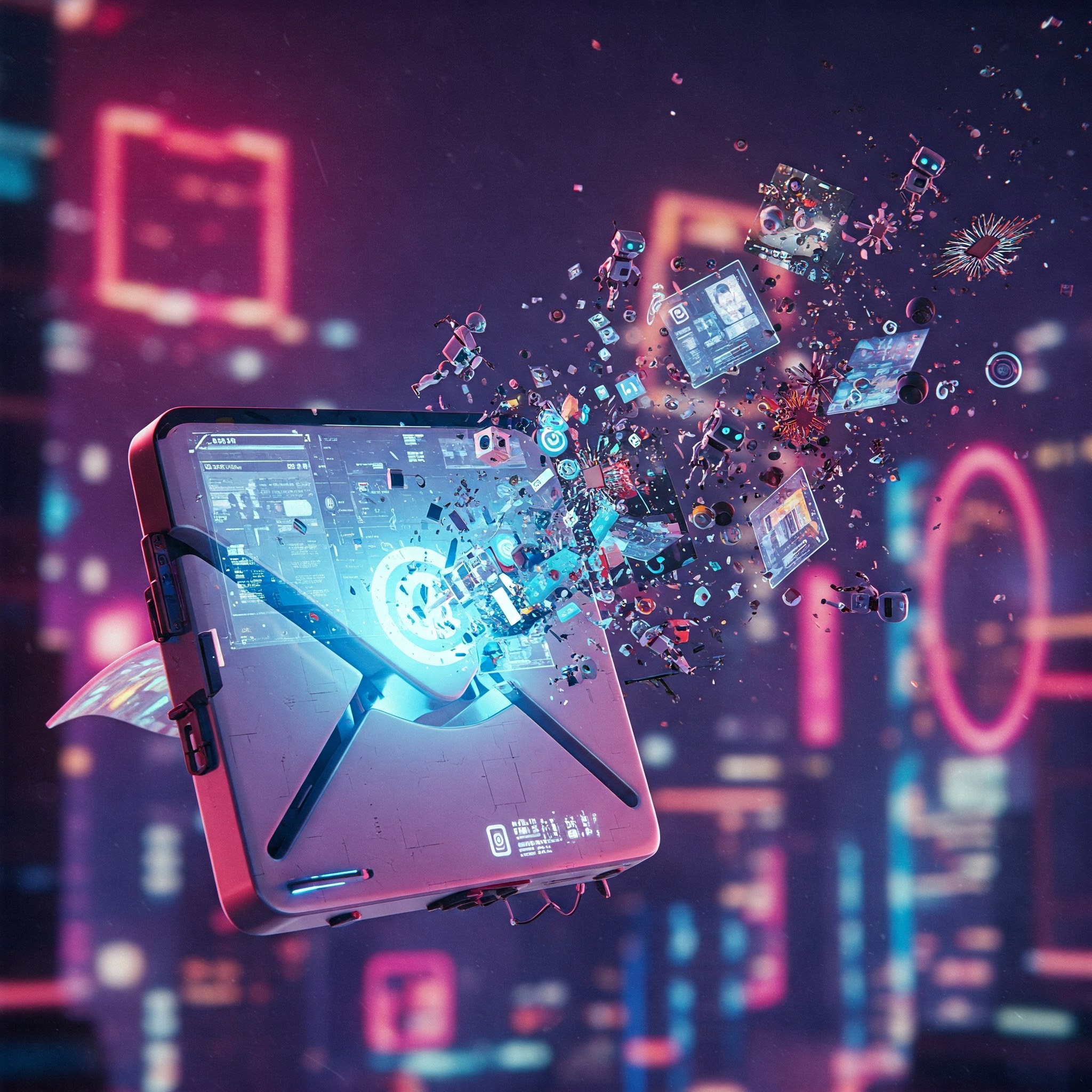The robots are coming for your playlists. And maybe even writing them. Artificial intelligence, once the stuff of sci-fi nightmares (or, you know, Her), is now composing symphonies, crafting catchy jingles, and generally making noise in the music industry. But is it music? Or just…math with a beat?
The Algorithmic Ascent
The idea of computers generating music isn’t exactly new. We’re talking about experiments dating back to the punch card era. But today’s AI, fueled by machine learning and enough data to choke a hard drive, is a different beast. These systems aren’t just spitting out random notes; they’re analyzing patterns, mimicking styles, and even attempting originality (emphasis on attempting).
Consider AIVA, the AI that specializes in orchestral and cinematic scores. Need a sweeping, emotional piece for your indie film about a lonely toaster? AIVA’s got you covered. Or perhaps OpenAI’s MuseNet, a musical chameleon capable of morphing into any genre you can imagine. Feeling a polka-metal fusion? MuseNet might just deliver… something.
From Inspiration to Automation
AI in music isn’t just about composition. It’s also about streamlining the production process. Beat-making, sound design, even audio engineering – tasks that once took hours of human effort can now be handled (or at least assisted) by AI. Think of it as the musical equivalent of spellcheck, only instead of fixing your grammar, it’s correcting your terrible sense of rhythm.
And let’s not forget the democratization of music. Aspiring artists, armed with AI-powered platforms, can now create professional-sounding tracks without years of training. Suddenly, everyone’s a producer. Which is either a blessing or a curse, depending on your tolerance for amateur synth solos.
The Ethical Minefield
Of course, this AI-powered musical revolution isn’t without its complications. Copyright, for one, is a legal headache waiting to happen. If an AI composes a song, who owns the rights? The developer? The user? The AI itself (presumably demanding royalties in the form of electricity)?
Then there’s the looming threat of job displacement. Will AI replace human musicians? Unlikely, at least for now. AI lacks the emotional depth, the storytelling ability, the sheer humanity that makes music truly resonate. But it could certainly impact the roles of some producers and engineers. Think of it as the industrial revolution, but with synthesizers.
Perhaps the biggest danger is over-reliance. Will musicians become so dependent on AI that originality and innovation suffer? Will we end up with a homogenized sound, a bland, algorithmic soup devoid of any real flavor? The answer, hopefully, is no. But it’s a risk worth considering.
Adapt or Be Algorithmically Assimilated
Smart artists are already embracing AI, not as a replacement, but as a collaborator. Taryn Southern released an entire album composed with AI assistance. Grimes uses AI to create unique sounds and textures. David Guetta, bless his soul, uses AI to refine his beats. The future of music, it seems, is a hybrid – a blend of human creativity and artificial intelligence.
So, what’s next? AI-generated lyrics? Real-time AI music performances that adapt to the audience? AI-powered music therapy? The possibilities are endless, and slightly terrifying. One thing’s for sure: the music industry is changing, whether we like it or not. And while AI may not be able to replicate the raw emotion of a live performance, or the sheer genius of a Mozart, it’s certainly shaking things up. Just try not to let it write your next love song. Unless you’re into that sort of thing.
In the meantime, keep an ear out. You might just be surprised by what the algorithms are cooking up. And if you hear a song that sounds suspiciously like elevator music on steroids, well, you’ll know who to blame.

